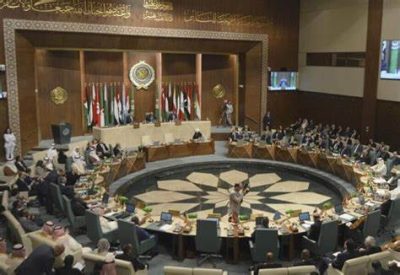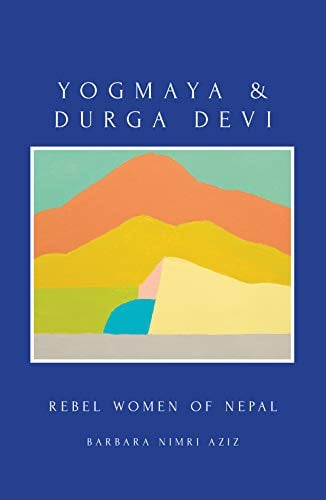Syria, Alas: Is There Reason for Optimism?

All Global Research articles can be read in 51 languages by activating the Translate Website button below the author’s name.
To receive Global Research’s Daily Newsletter (selected articles), click here.
Click the share button above to email/forward this article to your friends and colleagues. Follow us on Instagram and Twitter and subscribe to our Telegram Channel. Feel free to repost and share widely Global Research articles.
***
We have a stingy agreement from most Arab League countries that Syria, one of its founding members, one of the area’s strongest Arab nationalist members, one whose policy has been the most uncompromising toward Israel, is readmitted to that capricious club. This assembly, however august, is hardly a potent force— having lost much of its influence after the destruction and defanging of another once-core member, Iraq.
Assuring Palestinian national integrity had been one of its main aims. And where is that policy today? Palestine continues to shrink while, one by one, Arab league members have openly established relations with the Jewish state or are quietly engaging with it at various levels.
But back to Syria: to symbolically demonstrate the Arab League agreement, and highlight its key player, Syria’s president, Bashar Al-Assad is headed to Riyadh to meet its leaders. Apart from signifying the new status, what will it amount to?
There must be some negotiations. What will be the items on the table? Presently, it’s still unclear. I doubt if pressure on Syria to ease its stance on Israel will be in the cards. After all, it is Israel which has annexed Syrian land, it is Israel which regularly bombs Syria and kills its citizens with impunity. It is Israel which ties the hands of an American move towards Damascus.
What could Saudi Arabia, representing the League, demand? And in exchange for what?
First Syria has been so battered, its economy shredded, its talent bled out– tens of thousands of Syrian professionals now reside in the Arab diaspora adding their talent to the development of those neighbors – its currency devalued; one can’t imagine there’s anything left for the country to offer.
Then there’s the occupation of Syria, the massive and richest northeast region where Syria’s oil is being stolen under American protection – with a reported 900 U.S. troops on the ground – along with the nation’s extensive wheat-producing fields unavailable to Syrians. The occupation of that region, tactfully excluded from any news reports, severely cripples the country. We hear only that American forces must occupy that area of Syria to protect its Kurdish minority – (Like the CIA did for a decade in north Iraq (again with major oil reserves), setting the stage for the region’s autonomy which in turn continues to cripple Iraq. The U.S. says it is in Syria to thwart al-Qaida’s resurgence. (How noble; these arguments sound like something adopted from Britain’s colonial handbook.)
Washington asserts that regardless of the Arab League détente, its sanctions on Damascus will not be lifted. (But those have been in place, to one degree or another, for decades now.) And what about the eastern parts of Syria occupied by the U.S. supported Islamic rebels – under the heroic banner of ‘Syrian Defense Forces’ – and where the counterfeit White Helmets operate? They would be a really sticky point for the Arab League, since those well-equipped rebels are essentially a U.S. proxy force.
The Gulf Arab states are often called on to help rebuild the destroyed economies of member states. It didn’t work well in Lebanon. Will it be of any use to their new ally, Iran? Or devastated Yemen, now that a cease fire has been agreed on there?
Then there’s the Turkish factor; the northwest corner of Syria is essentially under Ankara’s control as well. Erdogan, should he win reelection in the coming days, is a wild card. (Russia’s silent hand needs more space to review, but Moscow will certainly be ‘present’, if not sitting at the table with these players. Not to forget Iran.)
Some brilliance and resolve will be needed at the upcoming Riyadh meeting. President Bashar, no longer young, has had little opportunity to mature politically the past 12 brutal years. Can he possibly manage to restore Syrian sovereignty from among such a cast of intervening agents?
*
Note to readers: Please click the share button above. Follow us on Instagram and Twitter and subscribe to our Telegram Channel. Feel free to repost and share widely Global Research articles.
Barbara Nimri Aziz whose anthropological research has focused on the peoples of the Himalayas is the author of the newly published “Yogmaya and Durga Devi: Rebel Women of Nepal”, available on Amazon.
She is a regular contributor to Global Research.
“Yogmaya and Durga Devi: Rebel Women of Nepal”
By Barbara Nimri Aziz
A century ago Yogmaya and Durga Devi, two women champions of justice, emerged from a remote corner of rural Nepal to offer solutions to their nation’s social and political ills. Then they were forgotten.
Years after their demise, in 1980 veteran anthropologist Barbara Nimri Aziz first uncovered their suppressed histories in her comprehensive and accessible biographies. Revelations from her decade of research led to the resurrection of these women and their entry into contemporary Nepali consciousness.
This book captures the daring political campaigns of these rebel women; at the same time it asks us to acknowledge their impact on contemporary feminist thinking. Like many revolutionaries who were vilified in their lifetimes, we learn about the true nature of these leaders’ intelligence, sacrifices, and vision during an era of social and economic oppression in this part of Asia.
After Nepal moved from absolute monarchy to a fledgling democracy and history re-evaluated these pioneers, Dr. Aziz explores their legacies in this book.
Psychologically provocative and astonishingly moving, “Yogmaya and Durga Devi” is a seminal contribution to women’s history.


